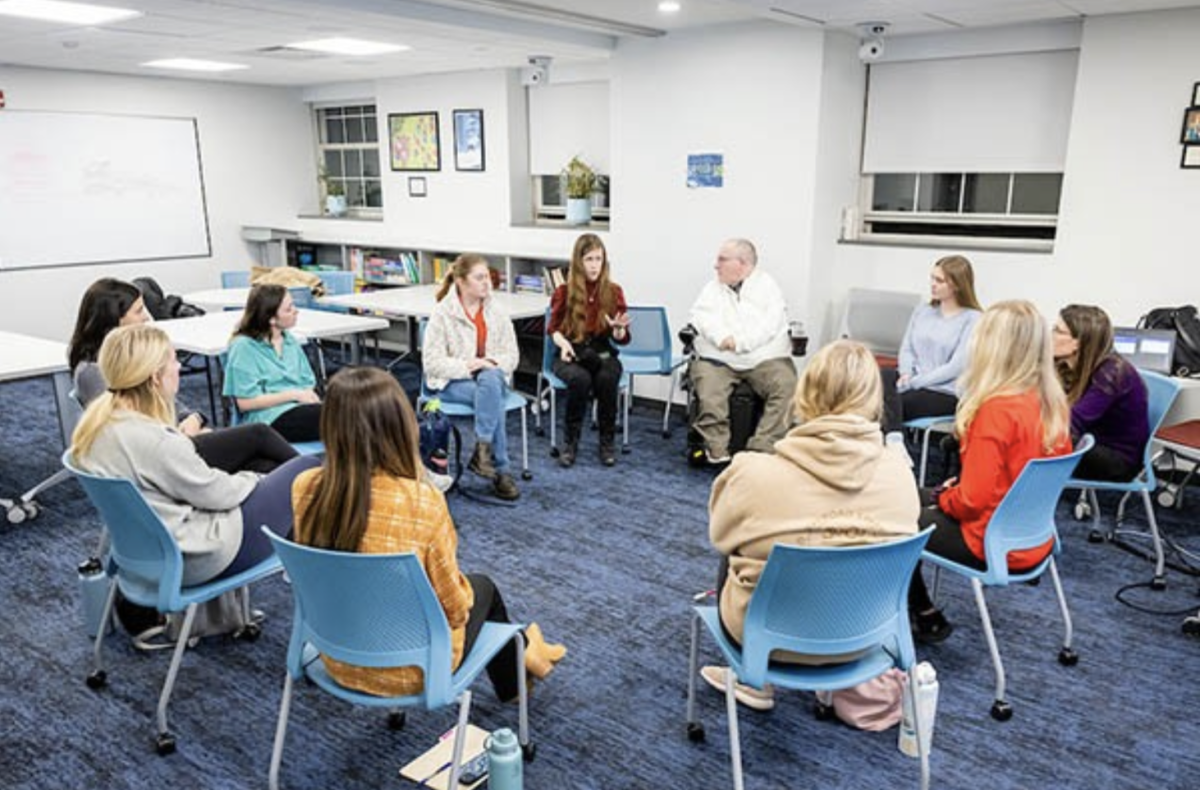On Tuesday Sept. 12, University President Rev. Peter M. Donahue, O.S.A, Ph D, professors, students, community members, alumni and donors gathered in Tolentine 206 to celebrate the opening of the new Center for Dialogue.
Attendants gathered together to hear from each contributor on the importance of the opening and what it means for the University.
Father Peter began the welcoming by stating, “This has been an idea that has been germinating for a while,” and that the Center has been founded upon “sharing ideas, but also listening to each other’s ideas.”
When first told about said idea, contributors joked about Father Peter bluntly stating, “Good, make it happen!”
The Center was funded by the Lorenzini Family, and alum Caden Lorenzini was present for the opening. Lorenzini shared many thanks to each contributor and shared that the Lorenzini Family Foundation strives to establish “healthy communities” and that she “doesn’t know anywhere that does that better than Villanova.”
When Professor Sheryl Bowen first embarked on teaching diversity designated courses at Villanova, on top of advising many students, she reported that the teaching was “mostly volunteer.”
Upon a past visit to the University of Michigan, the idea of engaging students in diversity designated dialogue classes was first born. The one credit courses offered by Villanova attracted students from across each school in the University.
The classes spanned a variety of topics, with five full-time faculty members. Educators reflected on the home-cooked community styled dinners the tight-knit community of facilitators and students shared in exchange for their participation.
“Through understanding oneself and people we learn to combat justice and inequality,” Bowen said.
Additionally, the values of dialogue are displayed proudly upon entering the Center.
“We value an inclusive and honest community where members actively engage one another, recognizing each person’s dignity and working together to make a more socially just world,” its statement read.
Bowen explained the crucial and novel experiences the Center for Dialogue classes provide, as students would be, “engaging through narrative within the context of systems and structures in our society.”
She went on to note the vitality of sustained dialogue, which is “facilitated strategically,” and that one “can’t just do a one-stop workshop.”
The welcoming ceremony concluded, and attendants mingled, sharing stories of past dialogue classes, either taken or taught, the long road for the opening itself or marveled at how spacious the new offices were.
In true grand-opening fashion, attendants filed outside the Center for a ribbon cutting ceremony. The Center noted that it strives to create opportunities for establishing communities and meaningful interaction, and that there is a course for everyone, regardless of school or major.







